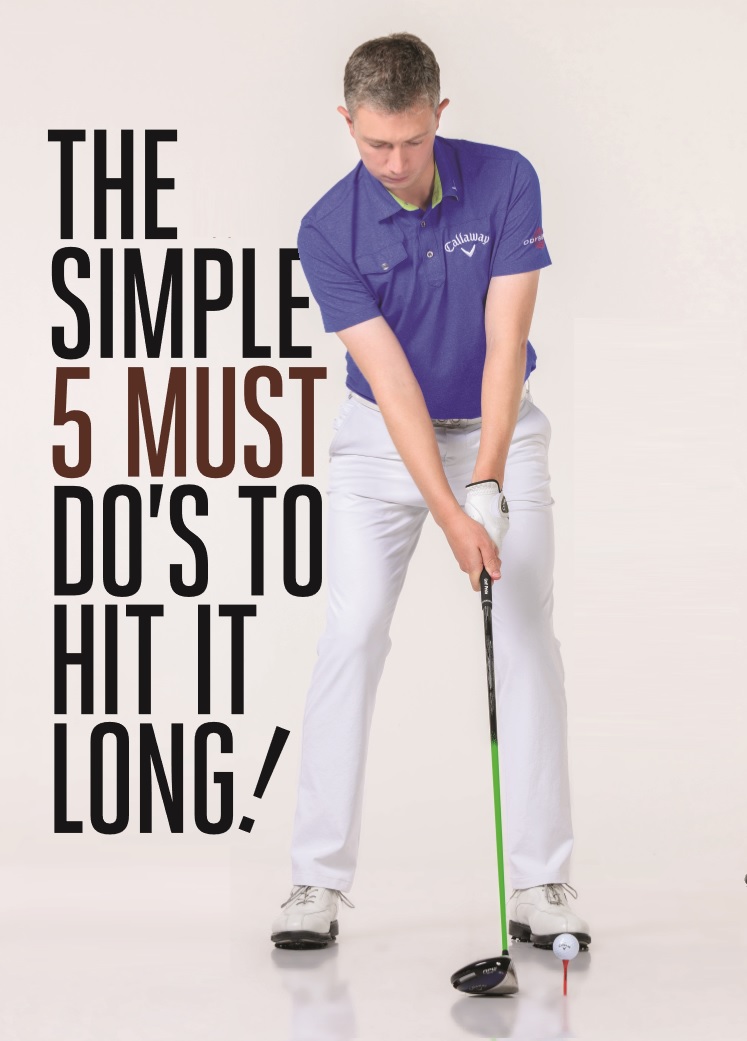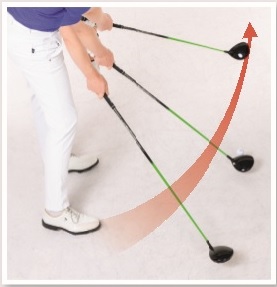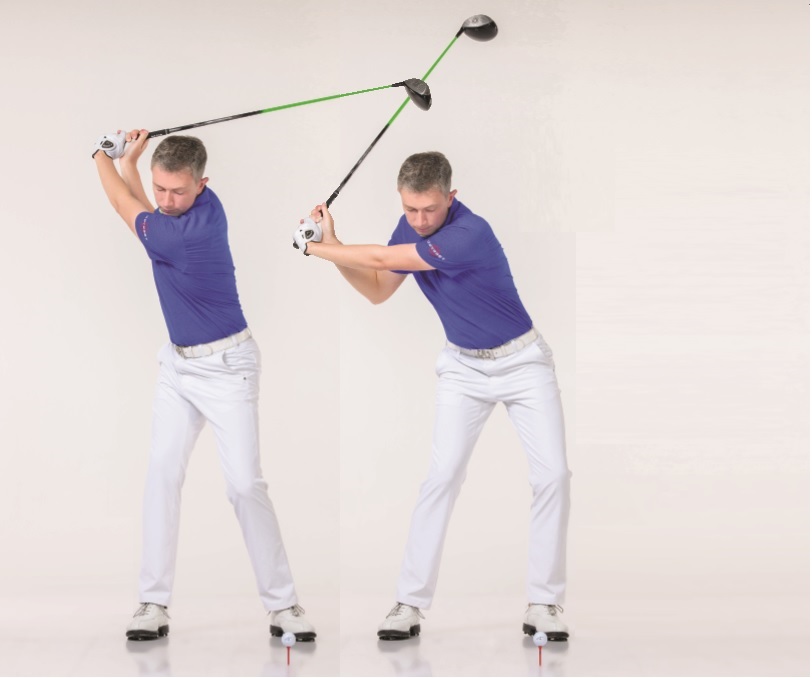The 5 Must Do’s To Hit It Long!
5 Golf Tips to hit it longer
1 – SETUP
Grip the club across the base of the fingers in the left hand. You will achieve the quickest, most powerful snapping of the wrists through the ball this way. The optimal angle of attack for the greatest distance is 5 degrees up at impact. There are 3 keys at setup to help you achieve this:
- Have good ball position at address. Tee the ball up more forward than what has been standard practice. Go ahead and move it up to the big toe or even the middle toe of your front foot.
- Tee the ball up higher than usual. Since we now know the optimal angle to attack the ball is 5 degrees upwards, we will need a little extra room to get our club underneath the ball.
- Tilt your upper body away from target; your right shoulder should sit lower than your left shoulder.
Narrow your stance. Too many golfers who wish to hit longer think that a super-sized stance makes them more powerful. We do everything powerful and in balance when our feet are underneath our hips.
2 – MOVEMENT
Stay in motion until you finally draw the club back to swing. Standing still over the ball for more than a second or two will cause the body to tighten up and the muscles will act more rigid. Once you walk into a shot, employ at least one waggle before pulling the trigger, just to keep the body loose and the muscles responsive.
3 – SWING PATH
Swing into the ball from the inside out. The difference between swinging 5 degrees outside in and 5 degrees inside out is approximately 25 yards at 90 mph clubhead speed. Your clubhead should cross the target line through the impact zone. Most golfers are outside in, cutting across the ball. If your pattern of driving is slicing and pulling, you are most likely outside in.
4 – SEQUENCE
Trying to consciously control the head or face of the club will never produce long straight shots. The more you can feel a loss of control in your downswing, the more control you will actually have. Your fastest swing will be when you accelerate from the lower body in the downswing, producing an automatic acceleration of the shoulders, arms and club, which is the correct sequence to create speed. Your hands and arms must be conductors of this energy, not controls. Often when players try and swing “hard” they overly control the club, affecting the sequence.
5 – OPTIMAL
Clubhead speed is not everything. You may be able to keep right up with that ‘long hitter’ with your smooth swing. Your longest drives will usually be hit under control. Smooth rhythmic tempo and balance give you your best chance of striking the ball squarely and solidly. This often beats high clubhead speed. Most golfers have only a slight difference in speed between their max swing and their smooth fast swing. Sacrificing 2 or 3 mph of clubhead speed can often lead to gains of up to 10 or 15 mph of ball speed through better contact and timing.





